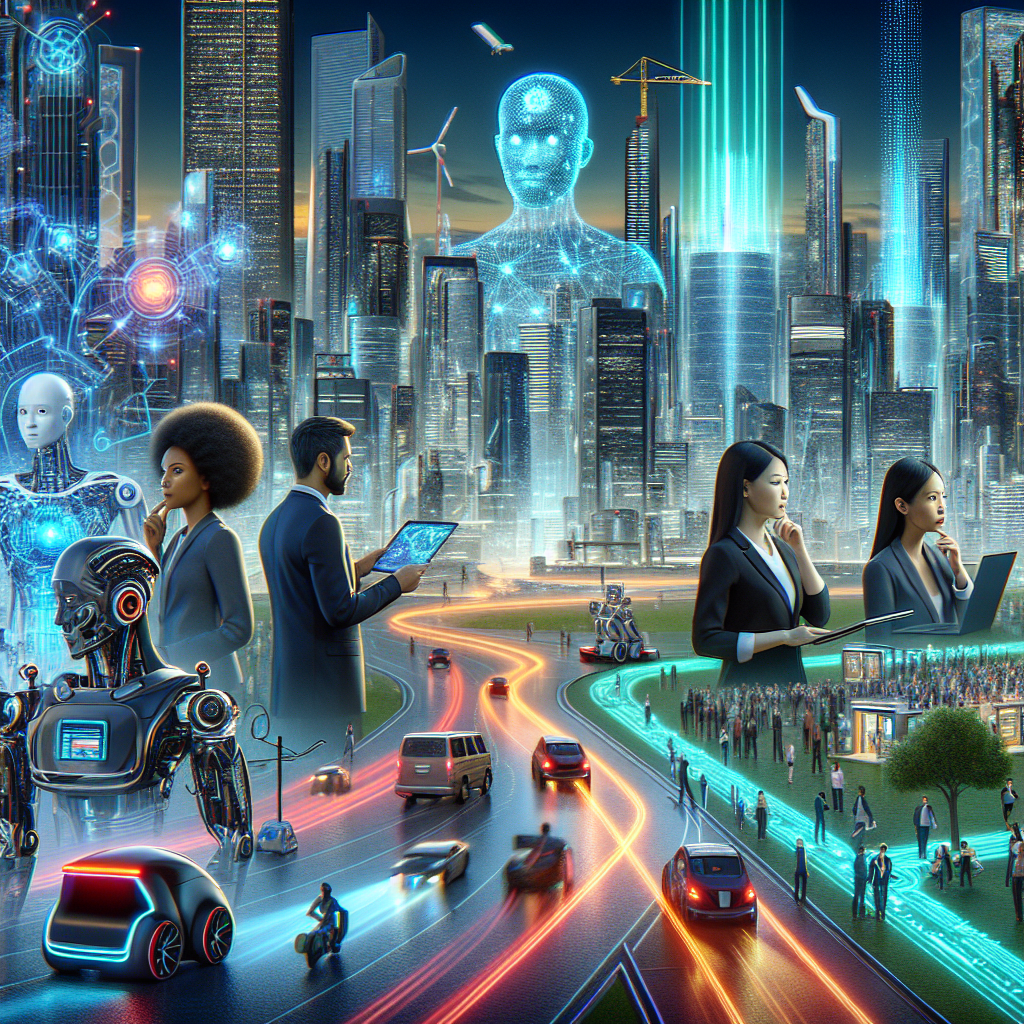The Future of AI Automation: Opportunities and Challenges
Artificial Intelligence (AI) has been rapidly evolving in recent years, with automation becoming an integral part of various industries. From self-driving cars to virtual assistants, AI has the potential to revolutionize the way we live and work. As AI technology continues to advance, there are both opportunities and challenges that come with its widespread adoption.
Opportunities of AI Automation
1. Increased Efficiency: One of the main benefits of AI automation is the increased efficiency it can bring to businesses. AI can perform tasks much faster and more accurately than humans, leading to improved productivity and cost savings.
2. Enhanced Decision Making: AI can analyze vast amounts of data in real-time and provide valuable insights to help businesses make better decisions. This can lead to more informed strategic planning and better outcomes.
3. Improved Customer Experience: AI-powered chatbots and virtual assistants can provide instant customer support, improving customer satisfaction and loyalty. AI can also personalize experiences based on customer preferences, leading to a more tailored and engaging interaction.
4. Innovation and Creativity: AI can help businesses innovate by automating routine tasks and freeing up employees to focus on more strategic and creative work. This can lead to the development of new products and services that drive growth and competitiveness.
5. Cost Savings: By automating repetitive tasks, businesses can reduce labor costs and allocate resources more efficiently. This can lead to significant cost savings and a higher return on investment.
Challenges of AI Automation
1. Job Displacement: One of the main concerns about AI automation is the potential displacement of jobs. As AI technology becomes more advanced, some jobs may become obsolete, leading to unemployment and economic disruption. It is crucial for businesses to invest in reskilling and upskilling programs to help employees adapt to the changing workforce landscape.
2. Data Privacy and Security: AI relies on vast amounts of data to function effectively. This raises concerns about data privacy and security, as sensitive information may be at risk of being compromised. Businesses must prioritize cybersecurity measures to protect customer data and comply with regulations such as GDPR.
3. Bias and Fairness: AI algorithms can be biased if the training data used is not diverse or representative. This can lead to unfair outcomes and discrimination, particularly in areas such as hiring and lending. Businesses must address bias in AI systems to ensure fairness and transparency.
4. Ethical Concerns: AI automation raises ethical concerns around accountability, transparency, and responsibility. Businesses must ensure that AI systems are developed and deployed ethically, with clear guidelines and oversight to prevent misuse or harm.
5. Lack of Regulation: The rapid advancement of AI technology has outpaced regulatory frameworks, leading to a lack of clear guidelines and standards. Businesses must navigate this regulatory uncertainty to ensure compliance and mitigate legal risks.
FAQs
Q: Will AI automation replace human jobs?
A: While AI automation may lead to job displacement in some industries, it is also expected to create new opportunities and roles that require human intervention. Businesses can leverage AI technology to augment human capabilities and improve efficiency, rather than replace human workers entirely.
Q: How can businesses address bias in AI algorithms?
A: Businesses can address bias in AI algorithms by ensuring diverse and representative training data, conducting regular audits and testing for bias, and implementing bias mitigation techniques such as algorithmic transparency and fairness measures. It is essential to prioritize diversity and inclusivity in AI development to prevent bias and discrimination.
Q: What are the ethical considerations of AI automation?
A: Ethical considerations of AI automation include accountability, transparency, and responsibility. Businesses must ensure that AI systems are developed and deployed ethically, with clear guidelines and oversight to prevent misuse or harm. It is crucial to prioritize ethical principles such as fairness, privacy, and security in AI development to build trust and credibility with stakeholders.
Q: How can businesses ensure data privacy and security in AI automation?
A: Businesses can ensure data privacy and security in AI automation by implementing robust cybersecurity measures, encrypting sensitive data, and complying with regulations such as GDPR. It is essential to prioritize data protection and privacy by adopting best practices such as data anonymization, access controls, and regular security audits to safeguard customer information and mitigate risks.
Q: What are the key benefits of AI automation for businesses?
A: The key benefits of AI automation for businesses include increased efficiency, enhanced decision making, improved customer experience, innovation and creativity, and cost savings. AI technology can help businesses streamline operations, drive growth, and stay competitive in a rapidly evolving market by automating routine tasks, analyzing data insights, and personalizing customer interactions.

